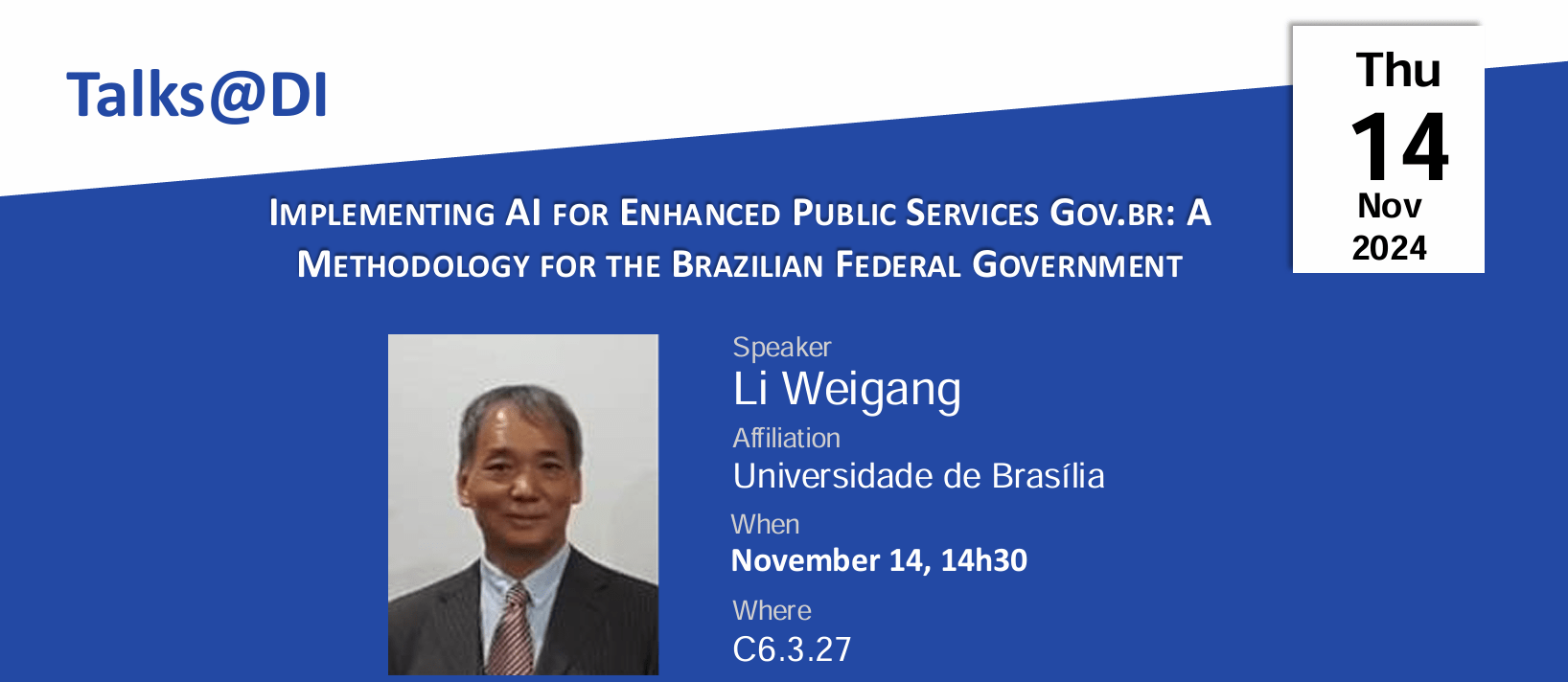Title: Implementing AI for Enhanced Public Services Gov.br: A Methodology for the Brazilian Federal
Speaker: Li Weigang (Universidade de Brasília)
Date: November 14, 2024, 14h30
Where: Ciências ULisboa, 6.3.27
Invited by: Alysson Bessani
Abstract:
The website portal of the Brazilian federal government consists of pages from almost 40 ministries, 180 public agencies and up to 5000 public services for all citizens, posing a significant challenge in improving service quality. This article presents an innovative methodology to implement artificial intelligence (AI) to address these challenges, to enhance the efficiency, accessibility, and quality of services to the population. The methodology combines elements of Lean Office, Design Sprint, Analytic Hierarchy Process (AHP), and advanced AI techniques, particularly Large Language Models (LLMs), making it flexible and adaptable to the needs of government entities. Developed in collaboration with project management, public servants, and stakeholders, the methodology includes a survey of demands, selection, and prototyping of AI projects in a complex government context. The practical application selected the Gov.br portal for prototyping, involving the development of an advanced generative agent to interact with citizens, clarify doubts, direct to the requested services, and provide human transshipment when necessary. The recommended practices offer a valuable contribution to other developing countries seeking to integrate AI solutions into their public services.
Short Bio:
Li Weigang received his Ph.D. from the Aeronautics Institute of Technology (ITA), Brazil in 1994. He conducted postdoctoral research at the University of Calgary, Canada in 2001-2002. Currently, he is a full professor, the coordinator of the Transportation Intelligent Computing Laboratory (TransLab) and vice-chair of the Department of Computer Science, at UnB. Prof. Li Weigang has coordinated various research projects funded by Brazilian agencies such as CAPES, CNPq, FINEP, FAPESP, and FAPDF, as well as industry collaborations with Atech and Boeing. His research spans artificial intelligence with a focus on machine learning, NLP, and computational modeling in air traffic management.

